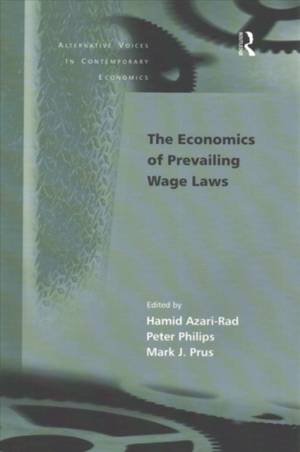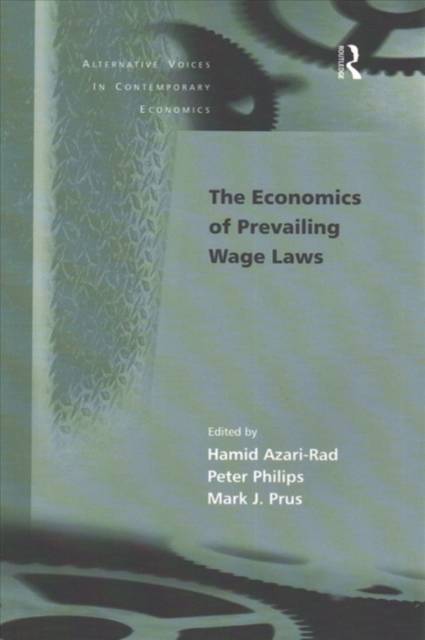
- Afhalen na 1 uur in een winkel met voorraad
- Gratis thuislevering in België vanaf € 30
- Ruim aanbod met 7 miljoen producten
- Afhalen na 1 uur in een winkel met voorraad
- Gratis thuislevering in België vanaf € 30
- Ruim aanbod met 7 miljoen producten
Zoeken
Omschrijving
Prevailing wage laws affecting the construction industry in the United States exist at the Federal and State levels. These laws require that construction workers employed by contractors on government works be paid at least the wage rates and fringe benefits 'prevailing' for similar work where government contract work is performed. The federal law (Davis-Bacon Act) was passed in 1931. By 1969 four fifth of States had enacted prevailing wage legislation. In the 1970s, facing fiscal crises, States considered repealing their laws in an effort to reduce construction costs, and since 1979 nine States have repealed their laws. These repeals at State level along with unsuccessful attempts to repeal the Davis-Bacon Act have pushed prevailing wages to the forefront of public policy and controversy. This book, for the first time, brings together scholarly research in the economics of prevailing wages placed in historical and institutional context.
Specificaties
Betrokkenen
- Auteur(s):
- Uitgeverij:
Inhoud
- Aantal bladzijden:
- 270
- Taal:
- Engels
- Reeks:
Eigenschappen
- Productcode (EAN):
- 9781138258495
- Verschijningsdatum:
- 11/11/2016
- Uitvoering:
- Paperback
- Formaat:
- Trade paperback (VS)
- Afmetingen:
- 156 mm x 233 mm
- Gewicht:
- 452 g

Alleen bij Standaard Boekhandel
+ 140 punten op je klantenkaart van Standaard Boekhandel
Beoordelingen
We publiceren alleen reviews die voldoen aan de voorwaarden voor reviews. Bekijk onze voorwaarden voor reviews.











